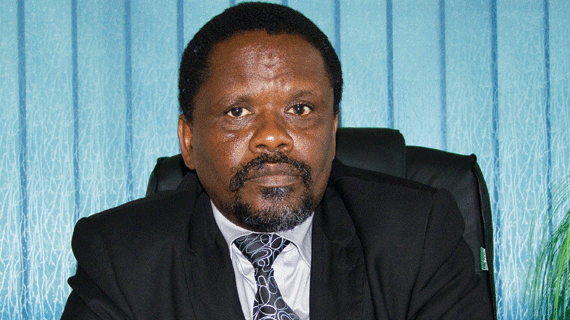
ANYTHING taking place at Zanu PF is a harbinger for something in the offing. Close followers of Zanu PF politics will agree.
At the Lancaster House talks, both PF Zapu and Zanu PF had agreed to contest the first general election under the umbrella of the Patriotic Front. Army commanders of both Zipra and Zanla were in agreement regarding the said arrangement.
It was almost a given, that had the parties contested as the Patriotic Front, Zapu had the upper hand, based on its nationalistic policies. Secondly, it had established a government in exile, which had groomed its cadrés for governance. On the military front, it was superior both in terms of weaponry and personnel. It had a regular army, over and above the guerrillas.
This advantage or cutting edge over Zanu PF spelt Zapu’s downfall.
After weighing the pros and cons of going into elections jointly, Zanu PF opted to go it alone.
Asked to comment on the possible winner of the 1980 general election, Lord Arthur Soames remarked:- “It’s not necessarily the popular or strong party that will win”.
Calculatively, when Zanu PF won the election, it immediately called for a reconciliation and merging of the three armies, namely the Rhodesian army, Zipra and Zanla. This seemingly good gesture earned Mugabe accolades with Britain, resulting in him being knighted by the Queen.
Insidiously, the plan was to neutralise both Zipra and the Rhodesian army. General Peter Walls was tasked with leading the combined armies. With the Rhodesian army now under the command of Mugabe, Zipra had been weakened.
- Chamisa under fire over US$120K donation
- Mavhunga puts DeMbare into Chibuku quarterfinals
- Pension funds bet on Cabora Bassa oilfields
- Councils defy govt fire tender directive
Keep Reading
However, Zipra remained a thorn in the flesh, owing to the advantages it had over Zanla, as alluded to earlier on. The so-called dissident menace, was mooted and operationalised. Another disturbing development was that Zapu had managed to win all the 20 seats in Matabeleland, thereby ring-fencing the region.
First, it was dividing the Patriotic Front, followed by the merging of the armies. Innocent observers applauded this statesmanship as of the highest order.
Once the threat of the Ian Smith regime was quashed, it was time to deal with Zapu and its military wing Zipra. Narrating the harrowing experiences he endured, the late Joshua Nkomo in his book, The Story Of My Life, says there was a time he wished he had been killed by the whiteman’s bomb in Zambia, than being persecuted by fellow comrades in arms.
Magnanimous as he was, “Big Josh” negotiated and signed the Unity Accord of 1987. He later bemoans his trait of fully trusting everyone, he dealt with. His upbringing had taught him to be trustworthy and as such he had no reason not to trust other people.
This was his greatest undoing. The late Nelson Rolihlahla Madiba Mandela, once confronted his jailers: “Prisoners don’t negotiate with their jailers”, referring to attempts by the Boers, to negotiate South Africa’s independence with him whilst he was incarcerated.
No treaty specialist will endorse the circumstances under which the Unity Accord of 1987 was signed. Almost 20 000 innocent civilians had been massacred in the Midlands and Matabeleland, Big Josh was smarting from a near assassination, which had driven him into exile in Britain.
Amazingly, the imperialists he had fought for most of his life offered him asylum. There is no doubt that Zapu went into this accord under duress, with a gun pointed to the head as it were.
Indications are that Zapu’s relevance in the Unity Accord, is being downplayed. Jabulani Sibanda aptly put it, when he asked if the gentlemen who signed the Unity Accord were no longer gentlemen. Legally, a gentleman agreement gathers the force of a written agreement by practice over time.
Another dimension that renders the Unity Accord shaky, is the headlessness of opposition. Zanu PF is currently on a field day. There is no threat that would seriously call for strict adherence to the Unity Accord.
Alternatively, Zanu PF feels insecure as some war veterans no longer buy the sanctions chorus. Temba Mliswa and Sibanda have openly challenged their party, to stop blaming the sanctions for the poor performance of the economy.
Both cadrés have called upon Zanu PF to deliver on promises it made, in the run-up to the election. Mliswa has gone a step further to call for the government to support local industry, by giving them business, a good example being the Willowvale Motor Industries.
The just-ended youth and women’s league conferences of Zanu PF unanimously called for the reintroduction of the Border Gezi youth service training.
Moses Tsimukeni Mahlangu is the general-secretary for Zimbabwe Urban Councils Workers’ Union. He is a labour consultant and arbitrator. Feedback: E-mail: [email protected]










